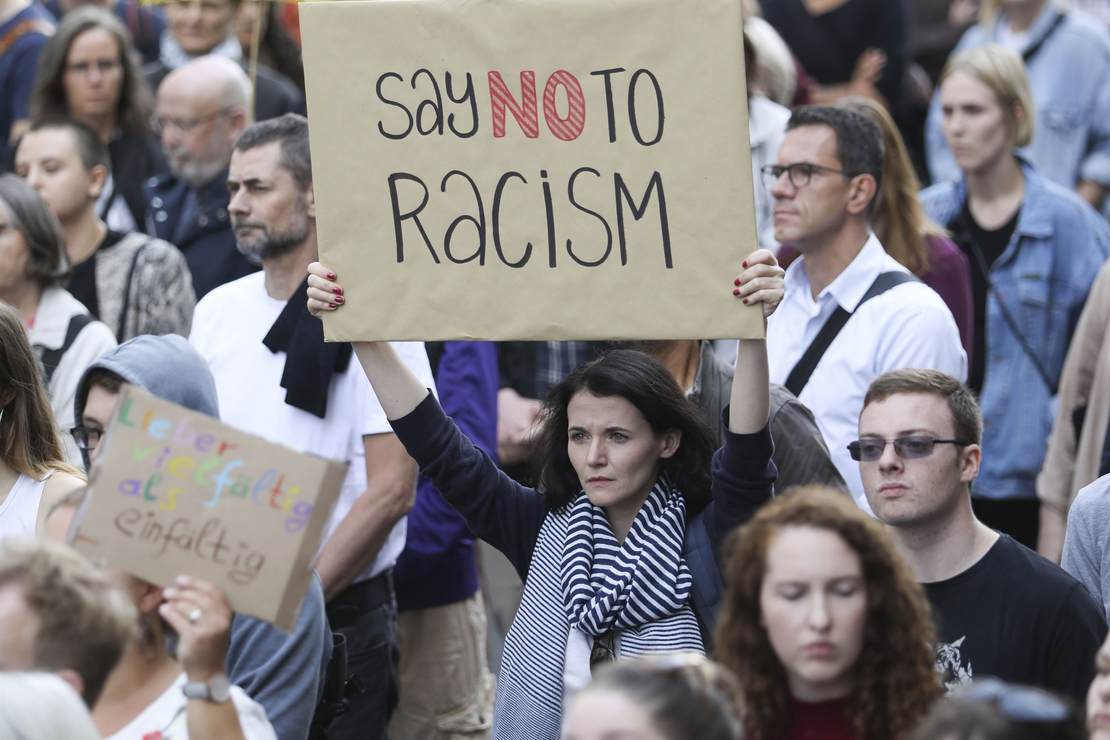
University of Cincinnati instructor Antar A. Tichavakunda has strong views on regulations regarding particularly pigmented pupils.
The professor has penned a piece for Inside Higher Ed insisting darker individuals don’t deserve the same rules as whites.
In “Let’s Talk About Race and Academic Integrity,” he serves up stats:
[In a study], Black and Asian…students reported being accused of plagiarism [twice that of] any other group… Further, Black students were the most likely to report being accused of cheating in college (9 percent of Black students reported being accused of cheating in a college course, compared to 6 percent of all students).
Hence, we need to take a serious look at race related to “academic integrity.”
For those of you who are unfamiliar:
Academic integrity is already about race. From the assumptions behind who looks like they are cheating to the punishments given for cheating to the technology that monitors cheating to what counts as cheating, the idea of academic integrity is racialized through and through.
It appears Antar’s positions hold that only white people can be racist; and white people are indeed racist. He gives the example of a black woman to whom he spoke while doing book research. She explained she was the only black female in her major and she never cheated. Once, she caught someone trying to copy her during a test. She moved across the room, fearing she’d be the one accused.
According to Antar, that proved a point:
The measures she took…are telling. … Racist and sexist beliefs shape assumptions about who looks like they are cheating and who is likely to be believed in front of a non-Black instructor.
He assails anti-cheating software, which “does not always accurately assess people who have darker skin.”
[A]s scholars such as Ruha Benjamin and Safiya Noble have shown, the algorithms and codes structuring such technologies can perpetuate racial biases and stereotypes.
Amid our ideas on academic integrity, he poses, “we can be too punitive.”
He wouldn’t destructively ding a student solely for lifting lines:
I won’t be failing a student for one copy and paste too many when the option of a redirection and a resetting of expectations is right there. Often, the problem lies in pedagogy — not the student. A zero-tolerance policy around plagiarism or academic integrity can do more harm than good.
Intolerance = inequity = iniquity:
If zero-tolerance educational policies have taught us anything, it is that they tend to disproportionately harm Black and Latinx students. The same goes for academic integrity policies.
It sounds as if whitey makes the rules; and he’s boldly bigoted:
The people who make the decisions about which transgressions are forgivable and which transgressions are necessary to report and punish do not exist in a race-neutral vacuum.
Interrogation’s on order:
Decision makers, from faculty members to student conduct officers, hold beliefs about identity that — if uninterrogated — could potentially be racist and discriminatory.
The instructor also asserts — “from experience” — that white fraternities and sororities “sometimes have test banks that members can use.”
His takeaway:
Some students take exams and do homework with unfair advantages.
READ RELATED: Ketanji Brown Jackson's name appears on first Supreme Court order and Amy Coney Barrett agrees with her
And:
Collaborating or cheating on exams can adversely impact Black students at schools where they are in the extreme minority.
It seems everyone cheats. But blacks have fewer chances; Re: racism.
[O]ne woman told me about the school of engineering, “There is rampant cheating, which is why [during exams] the white people sit with the white people. And the Asians sit where the Asians sit.” For Black students, who were usually one of few or the only one in their classes, it would be harder to collaborate on tests even if they wanted to. Access to unfair academic advantages that some might consider academically dishonest is shaped by race.
The college man’s conclusion: “‘Academic’ integrity and ‘academic honesty’ are fraught terms.”
[W]e need to come to terms with the fact that discourses and policies around academic integrity are not race-neutral.
Is Antar’s approach to education workable? Or is it merely that same word, minus the “r”?
Whatever the case, it calls to our evolution.
In school, as in America, there once existed the notion of earned success. In fact, it was hailed as a virtue of the greatest nation on Earth.
So far as I can tell, those days are bigly behind us:
Excellence Awaits: Professors Make Their Case for Ending Grades
Professor Decries the Racism of Enforced High School Rules and the ‘Overvaluation of White Feelings’
Law Professor Denounces the Constitution’s ‘White Supremacy,’ Calls for an ‘Antiracist’ Replacement
Professor Razes the Evil of Writing Rules, Whacks White Supremacy by Gonging Grades
In fact, to suggest certain races couldn’t be expected to keep up was once considered…racist.
But it’s a new world — of dog whistles and codes, in a country increasingly color-coded.
-ALEX
See more content from me:
SGA Judicial Candidate Is Canned After Quoting the Bible — Courts Don’t Need Religious Nuts
State of the Union: Cops Get Shot at by an Arrested Man’s Family Member — Who’s Four
Why We Can’t Have Nice Things: ‘Good Samaritan’ Who Saved Indiana Mall Goers Is Denounced as No Hero
Find all my RedState work here.
Thank you for reading! Please sound off in the Comments section below.
Source:





